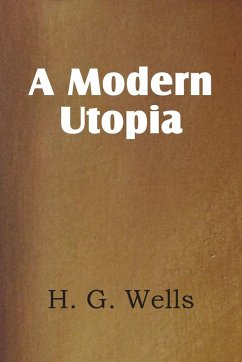A Modern Utopia is in all probability the last of a series of writings, of which-disregarding certain earlier disconnected essays-Anticipations was the beginning. Originally I intended Anticipations to be my sole digression from my art or trade of an imaginative writer. I wrote that book in order to clear up the muddle in my own mind about innumerable social and political questions, questions I could not keep out of my work, which it distressed me to touch upon in a stupid haphazard way, and which no one, so far as I knew, had handled in a manner to satisfy my needs. But Anticipations did not achieve its end. In Mankind in the Making I tried to review the social organization in a different way, to consider it as an educational process instead of dealing with it as a thing with a future history. In this present book I have tried to settle accounts with a number of issues left over or opened up by its two predecessors and to give the general picture of a Utopia that has grown up in my mind during the course of these speculations as a state of affairs at once possible and more desirable than the world in which I live. In its two predecessors the treatment of social organization had been purely objective; here I have tried to present not simply an ideal, but an ideal in reaction with two personalities. Moreover I have written into it as well as I can the heretical metaphysical skepticism upon which all my thinking rests, and I have inserted certain sections reflecting upon the established methods of sociological and economic science.... I am aiming throughout at a sort of shot-silk texture between philosophical discussion on the one hand and imaginative narrative on the other.
Hinweis: Dieser Artikel kann nur an eine deutsche Lieferadresse ausgeliefert werden.
Hinweis: Dieser Artikel kann nur an eine deutsche Lieferadresse ausgeliefert werden.








